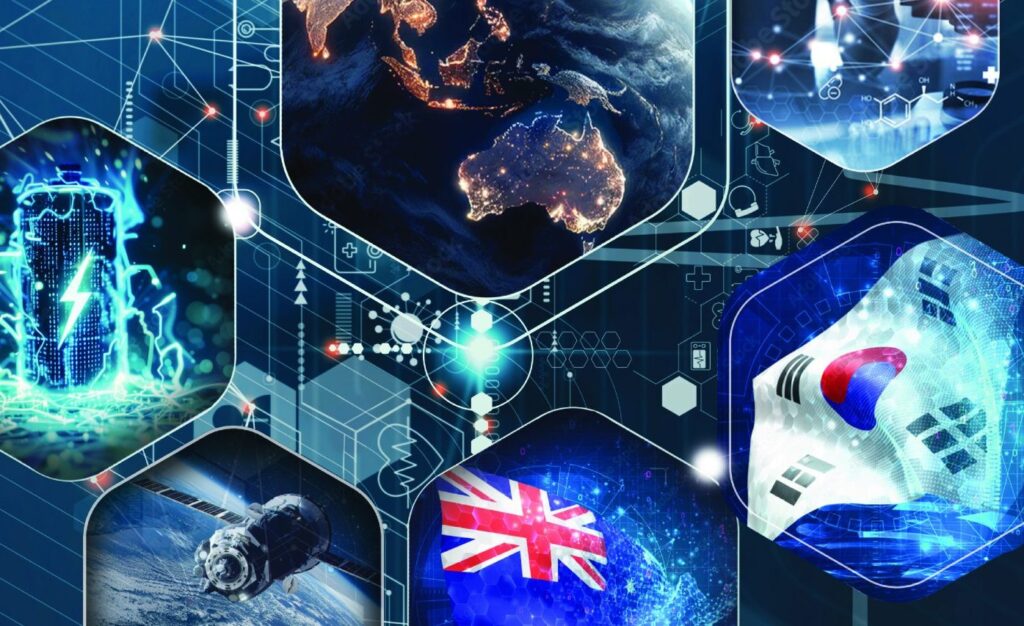Greater alignment between Australia and South Korea in critical technologies would produce significant strategic benefit to both countries and the Indo-Pacific. Overlapping and complex regional challenges, such as climate change, economic shocks and pandemics, underscore the need for international cooperation in critical technologies
Although these technologies have a range of beneficial social, economic and security outcomes, they are increasingly being deployed by regional adversaries for malign purposes, including espionage, cyberattacks and spreading disinformation. This is particularly alarming for many countries in the region amid intensified geostrategic competition.
The latest data from ASPI’s Critical Technology Tracker highlights challenges posed by technological advancements by emphasising the shift in technology leadership from the US to China over the past two decades. The tracker shows that China is now the leading country for high-impact research on critical technologies.
Enhanced collaboration between likeminded Indo-Pacific partners can counter China’s edge in technological research. ASPI’s new report recommends coordination and cooperation between Australia and South Korea in critical technologies, as the two regional powers have complementary technologies and are committed to upholding the US-led rules-based order.
In this report, we examine bilateral technological collaboration through the framework of four stages common to technological life cycles (innovation, research and development; building blocks for manufacturing; testing and application; standards and norms) and four corresponding critical technologies of joint strategic interest to both Australia and South Korea (biotechnologies, electric batteries, satellites and artificial intelligence).
Using this framework, we provide policy recommendations for Australian and South Korean government, research and industry stakeholders. We outline how they can build cooperation in the areas of biotechnology-related research and development, battery materials manufacturing, satellite launches and artificial intelligence (AI) standards-setting.
First, long-term exchanges between key R&D institutions will facilitate knowledge-sharing in the field of biotechnologies, a field relevant to both countries’ goals to become regional clinical trial hubs. We suggest that the Commonwealth Scientific and Industrial Research Organisation and the Korea Research Institute of Bioscience and Biotechnology lead this initiative.
Second, due to Australia’s abundance of critical minerals and South Korea’s desire to elevate its capacity to manufacture electric batteries, battery material manufacturers from both countries should collaborate in the joint production of such battery materials as lithium hydroxide and precursor cathode active materials. Although the POSCO-Pilbara Minerals plant is an existing example of a joint factory operating South Korea, we highlight the strategic benefit of building future factories on Australian soil to take advantage of a secure supply of critical minerals.
Third, a streamlined government-to-government agreement will help South Korean companies to take advantage of Australia’s geography for joint satellite launches. This could emulate an agreement between Australia and the US for joint satellite launches. It would make it easier for both Australia and South Korea to collate satellite data for civilian and defence purposes.
Finally, Australian and South Korean stakeholders involved in international standards-setting bodies should align their approaches to ensure that the development and implementation of AI technologies is consistent with both countries’ respective interests. ISO/IEC JTC 1/SC 42, a joint subcommittee on AI standards shared by the International Organization for Standardization and the International Electrotechnical Commission, is one recommended mechanism for coordinating the approaches of key Australian and South Korean stakeholders in AI standards.
The current political situation in South Korea may sow doubt in the mind of regional counterparts about its domestic stability and suitability as a partner. However, the quick overturning of martial law showed the robustness of South Korea’s democratic institutions. There may be short-term challenges to bolstering bilateral technological initiatives as the domestic situation continues to evolve, but the long-term trajectory for technological cooperation remains optimistic.
Aside from the economic, innovation and technology pillar of the bilateral Comprehensive Strategic Partnership and the Memorandum of Understanding on Cyber and Critical Technology Cooperation, the two countries are also active in furthering multilateral dialogue relating to critical technologies. Particularly, each country is internationally engaged in for a including the 3rd Generational Partnership Project, International Electrotechnical Commission and Minerals Security Partnership.
Technological cooperation between Australia and South Korea has can be leveraged to address regional challenges. This report serves as a starting point for furthering this cooperation. To ensure that the Indo-Pacific remains safe, secure and stable in the coming decades, now is the time for industry, research and government stakeholders in Australia and South Korea to jointly adopt a much greater and meaningful strategic role in regional technological collaboration.

